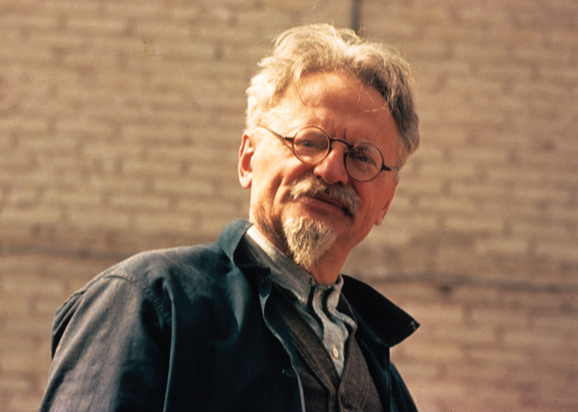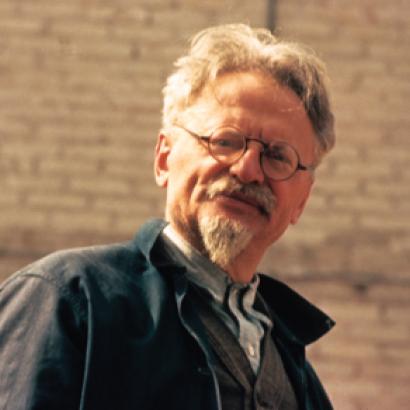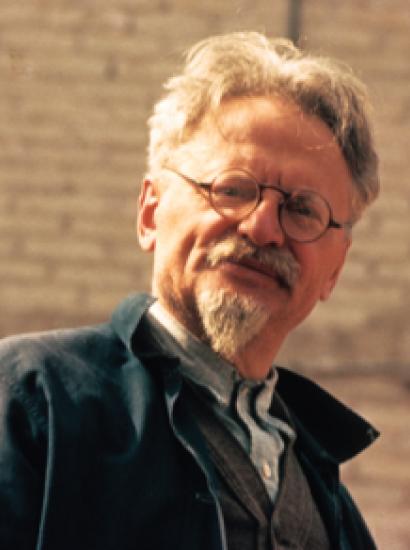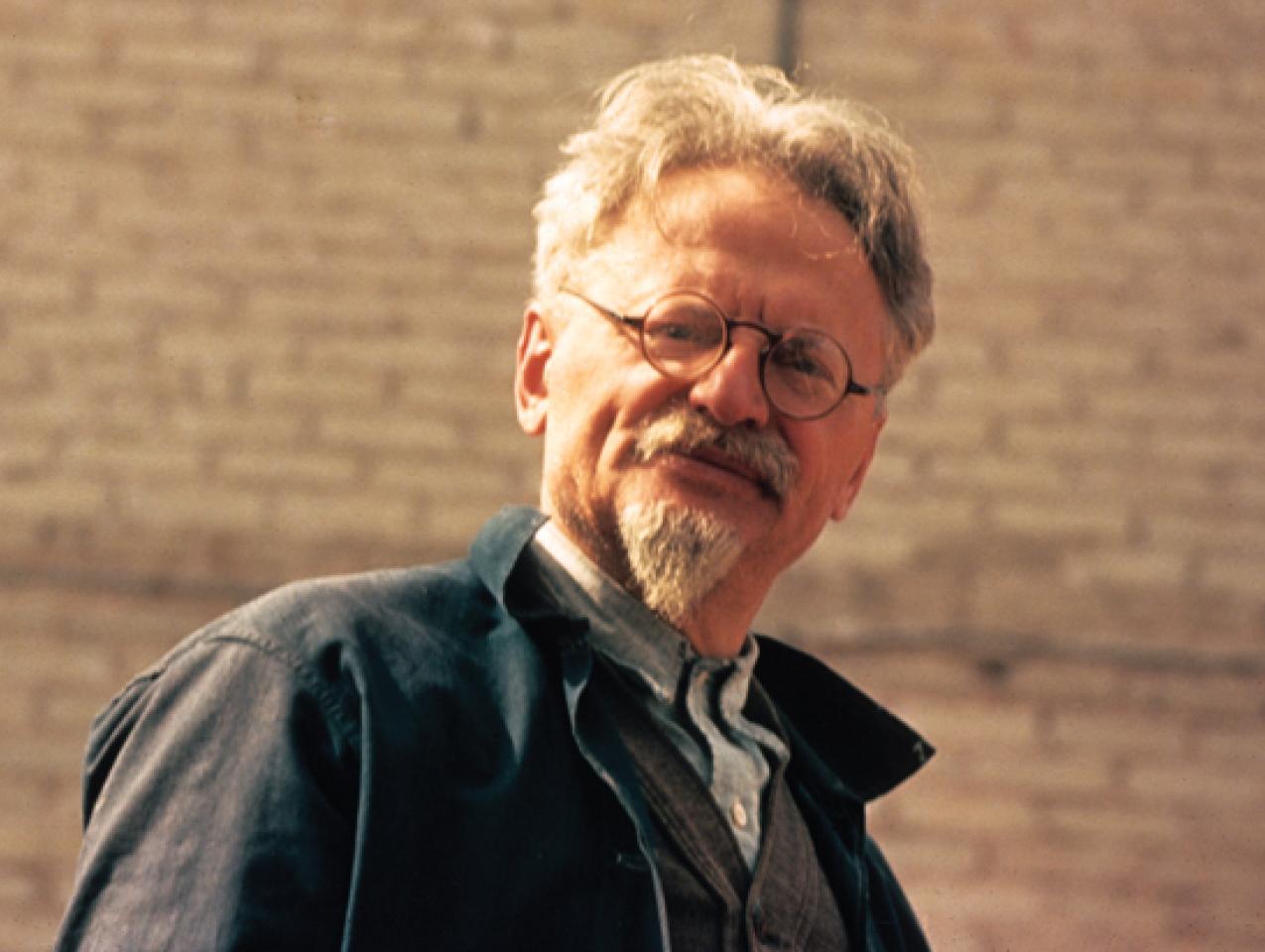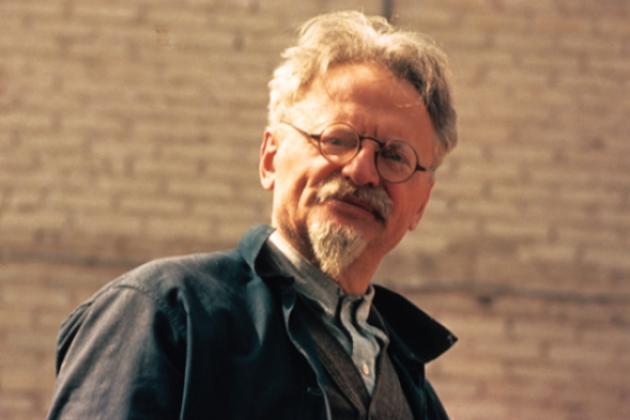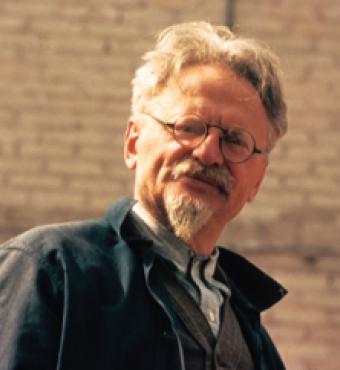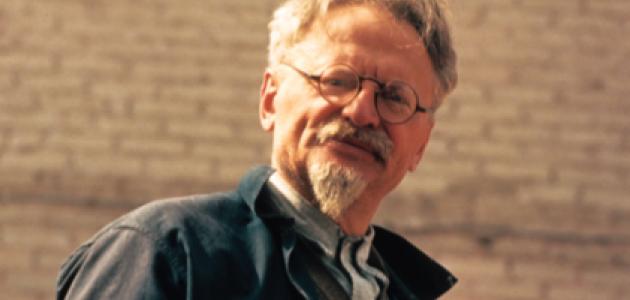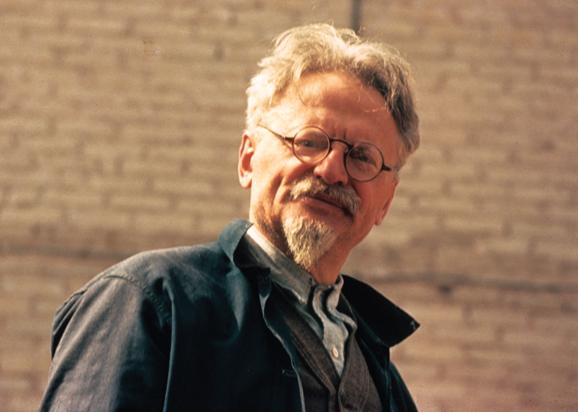- International Affairs
- History
- Contemporary
- US
- World
Leon Trotsky's brutal assassination by a Stalinist agent in Mexico in August 1940 might seem an unlikely wellspring for fiction, but it has inspired more than one novelist in recent years. Barbara Kingsolver's "The Lacuna," published in 2009, centered on an aspiring writer, a Mexican-American, who is shown joining Trotsky's Mexican household as it braces for the Kremlin's assault. In the same year, in Spanish, Leonardo Padura's "The Man Who Loved Dogs" was published, making its central figure the real-life assassin himself, Ramón Mercader. That novel is just now appearing in an English translation, alongside, coincidentally, John Davidson's Trotsky-themed "The Obedient Assassin."
In "The Man Who Loved Dogs," Mr. Padura, best known in his native Cuba for his detective novels, relies heavily for his facts and interpretation on "The Prophet Outcast" (1963), Isaac Deutscher's overtly sympathetic account of Trotsky's life in exile. Trotsky was expelled from the Soviet Union in 1929 after losing out to Stalin in a bitter contest for leadership of the Communist Party. He headed first to Turkey, then France and Norway, and finally Mexico, where he landed in January 1937.
Mr. Padura's most strenuous imaginative work involves filling in Mercader's background. What is known for certain is that the Spanish-born Soviet agent gained entry into Trotskyist circles by adopting the identity of a Belgian playboy and seducing an American Trotskyist visiting Paris. He then joined her in New York, from which he lured her to Mexico City on the pretext of a business assignment. Once there, he used his connection to her to insinuate himself into Trotsky's heavily guarded household: an occasional visitor waiting for his moment to strike.
Mr. Padura interweaves these narrative threads with another, this one running through Cuba, where Trotsky is officially vilified to this day for betraying the revolution. Mr. Padura's Cuban narrator is Iván, a writer at a creative dead end who one day in 1977 meets a man on the beach walking his two borzois (Russian wolfhounds)—a man who he comes to realize, during later encounters, is Trotsky's killer, now living in Cuba under a new name after having served 20 years in a Mexican prison for his crime and several more marking time in Moscow. "The man who loved dogs," as Iván calls him, is dying of cancer and decides, cautiously, to reveal his story.
Mr. Padura contrives to have Mercader first hear about the borzoi breed from George Orwell, whom he supposedly encountered in Barcelona, where "Ramón and Orwell almost never spoke of politics: they tended to talk about dogs." Mr. Padura steeps the assassin's back story in scenes from the Spanish Civil War, which served as a recruiting ground for the NKVD, the Soviet secret police. Mr. Padura's Mercader is brought to the U.S.S.R. to undergo training, even attending one of the Moscow show trials, where he witnesses chief prosecutor Andrei Vyshinsky scream at the defendants: "You all deserve to die like dogs!" Flash forward to 1977 and the beach in Cuba, where Mercader laments that one of his two borzois has fallen ill and will have to be put down; he dreads the prospect and asks the young man for assistance. Iván, who runs a bare-bones veterinary clinic and is himself a dog lover, flinches and refuses to help.
Trotsky, it turns out, also loved dogs. We are told that he insisted on bringing his own borzoi with him from Russia to Turkey. Mr. Padura then allows him to acquire a dog in Mexico, whereas in fact Trotsky's restricted mobility limited him to pet rabbits and chickens kept in cages beneath the high walls of his fortresslike home. It is there that Mr. Padura's Trotsky instructs Mercader on the intellectual superiority of dogs to humans, as the novelist lets his dog motif run off the leash. "Find yourself a borzoi," Trotsky tells him, and "you'll never forget me."
Spy-novel clichés and hard-boiled dialogue ("he's in Washington, singing like a canary") keep the pages of "The Man Who Loved Dogs" turning. Despite Mr. Padura's tendency to let a few of his characters make overlong speeches about the meaning of identity and the failure of the socialist utopia, the tension builds toward a dramatic climax that helps to make his novel a rewarding read, despite its excesses.
The same cannot be said of John P. Davidson's "The Obedient Assassin," a flat-footed stab at a suspense novel in which implausibilities abound, as when Mercader, newly enlisted in the NKVD, finds it odd that "no one had sworn him in as Soviet agent; no one had given him a secret badge or an identification card." (No hired hand of the NKVD would expect to receive such dangerous tokens of membership.) Elsewhere Mr. Davidson has a veteran comrade recall that Trotsky "became famous at a very early age, during the '04 uprising in Moscow"—a garbled reference to Trotsky's leadership of the St. Petersburg soviet during the Revolution of 1905. And he has one of Trotsky's guards, a native German, identify Franz Kafka as "a writer of German who lived in Vienna" and not, as was the case, in Prague.
Both novelists take liberties with history, some reasonable and others dubious. They both make Trotsky and his wife, Natalya, the houseguests of artists Diego Rivera and Frida Kahlo in a suburb of Mexico City, when in fact the couples, though living near one another, never spent time under the same roof. Perhaps this arrangement simplifies telling the tale of Trotsky's real-life affair with Frida. Mr. Davidson tries to raise the temperature by having Mercader himself take her to bed when she visits Paris. "I love Diego," his noir-cartoon Frida remarks, "but he's a sadistic pig."
Mercader's real-life conquest in Paris was Sylvia Ageloff, a homely Trotskyist social worker from New York. Mr. Padura's Sylvia is indeed physically unattractive, to the point that Mercader has to steel himself to perform as required, whereas in Mr. Davidson's novel Mercader falls in love with Sylvia, asks her to marry him, and can't take his mind off her. The effect is to make Mercader seem a puppy dog instead of the calculating hit man he actually was.
Conspiring behind the scenes, in both novels, is Caridad Mercader, Ramón's domineering and high-strung mother. Mr. Padura gives Caridad a heroin habit, while Mr. Davidson portrays her as addicted to knitting needles, turning out endless socks and sweaters like some pathological Hitchcock character. (In real life, she was a hardened combat veteran of the war in Spain.) Working closely with mother and son in Paris and Mexico is (true to life) Leonid Eitingon, from the NKVD. Mr. Padura follows fact in having the secret police call the conspiracy to kill Trotsky "Operation Duck," which means that Eitingon can announce dramatically: "The time to hunt the Duck has come." Mr. Davidson prefers the Freudian frisson of "Operation Mother."
Mr. Padura's Mercader is a killer to the end, never losing sight of the "historic necessity" of eliminating the treacherous renegade who is dividing the left in the face of Hitler. This portrayal seems realistic based on what is known about Mercader. Mr. Davidson's assassin, still in love with Sylvia, improbably gets cold feet. Trotsky poses no threat to Stalin, he informs Eitingon: "The Old Man is harmless." Only when Eitingon tells the disobedient Mercader that the NKVD will kill all three of them if he bails out does he grasp that he has no choice but to go through with it. When Mercader announces that he has decided on using a mountaineer's ice ax for the purpose, Eitingon responds like Ward Cleaver looking up from his newspaper: "You're thinking of going into his office with a farming implement?"
In the actual event, the assassin entered Trotsky's study armed with a pistol, a dagger and an ice ax. He struck the fatal blow—though Trotsky fought him off, emitting a prolonged, agonized cry that was heard throughout the compound and that would later haunt his killer, as we know from the real Mercader's testimony to police investigators. In Mr. Padura's novel, it haunts him into old age, on that desolate beach in Cuba.
—Mr. Patenaude, a research fellow at the Hoover Institution, is the author of "Trotsky: Downfall of a Revolutionary."







